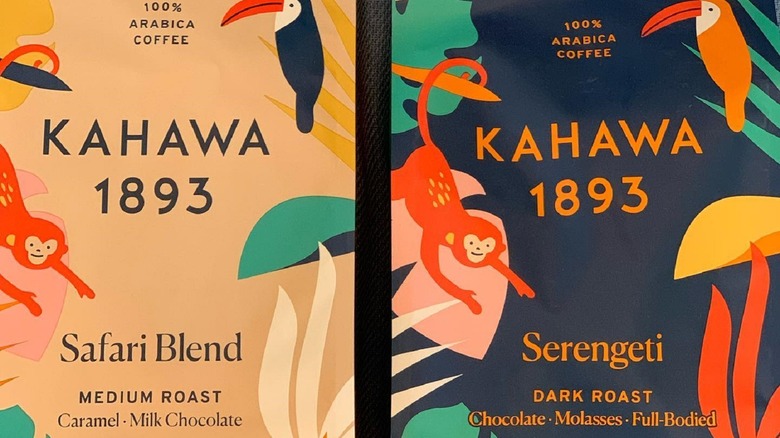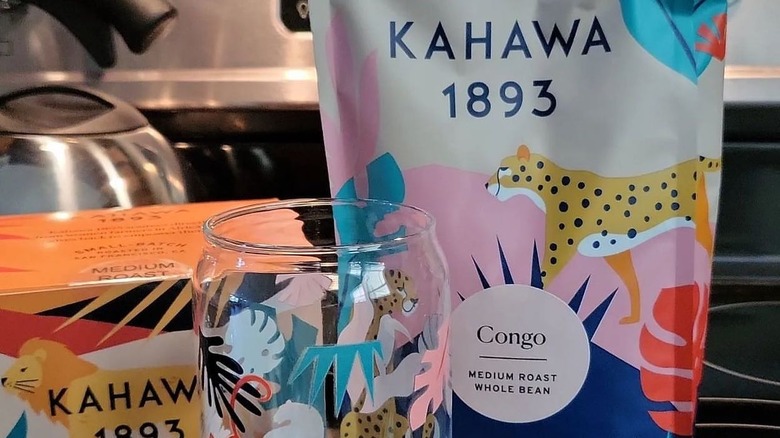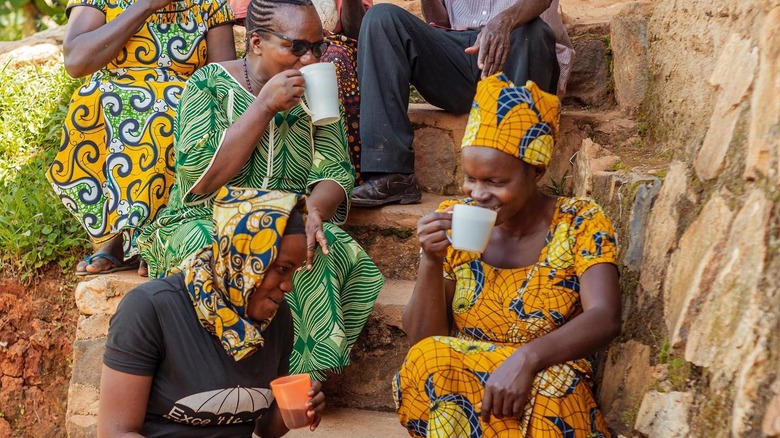Where Is Kahawa 1893 From Shark Tank Today?
In Swahili, "kahawa" means coffee. And although the coffee plant first spread from Ethiopia to the Arabian Peninsula in 700 AD, it returned to Africa for domestic cultivation in 1893. So, when Maggy Nyamumbo started her coffee company in 2017, she highlighted this history by naming it Kahawa 1893. And she runs it with a mission: To empower and support the women in Kenya doing 90% of the labor — but historically owning 1% of the land producing coffee — who remain poorly compensated. Each bag of Kahawa has a QR code that, when scanned, offers the opportunity to tip the women farmers in Kenya, and the company matches each tip. By 2022, Kahawa 1893 had given over $20,000 to the women farmers growing its coffee.
In 2022, Nyamumbo brought Kahawa 1893 to "Shark Tank," where she sought $350,000 in exchange for 5% of the company. In 2021, the company made $2 million in revenue. By the time Nyamumbo brought her coffee to the Sharks, it was on track to hit $4 million and was the first Black woman-owned coffee brand to launch with Trader Joe's. She walked out with a deal for $350,000 for 8% from guest Shark Emma Grede. The episode aired in February 2023, and Kahawa 1893 is now in 1,037 stores across the U.S. and has partnered with woman-owned Brooklyn coffee shop Early Yves to provide all their coffee.
Good deals for good coffee
With the U.S. coffee industry reaching $18.9 billion in 2022 and growing, coffee brands with a good story can be a good investment, and the Sharks loved the coffee as much as they loved Maggy Nyamumbo. Although Kevin O'Leary was immediately out, Emma Grede offered the investment for 12.5%. Still, she said it wasn't enough money to do what Nyamumbo would need to do, and the first thing they'd do together would be to fundraise. Robert Herjavec jumped in and matched Grede's offer as a secondary investor. Not willing to give up a quarter of her company, Nyamumbo made use of her Harvard MBA and countered a creative deal: $150,000 in cash and $200,000 in debt for 8%. Every Shark but O'Leary said they'd take that deal.
Herjavec said the deal was too complicated and offered a simpler one: $350,000 for 8%. Grede matched the deal. Swayed by a Black woman investing in a Black woman to empower Black women, Nyamumbo took Grede's deal. (Grede herself isn't a coffee drinker, but maybe she should be.)
Kahawa 1893 sells 16 different roasts and origins of coffee beans from Kenya, Rwanda, and Congo, including both whiskey and rum barrel-aged coffee beans to make at home. It offers subscriptions, sampler sets, including the Shark Tank Sampler, and single-serve coffee bags to be dunked in hot water like tea. It is on track to produce K-Cups in 2023, but there is no clear timeline for the product launch.
Making a cultural difference in Kenya
The toll of a colonial structure on the Kenyan coffee industry has been harsh. Farmers generally receive prices less than their cost of production from traders — in itself a huge gender disparity, forcing Kenyan women to remain in poverty. Tipping your farmers is unusual, but it's been successful. Funds from tips have been used to purchase equipment, livestock, and more, helping farmers grow their businesses and build generational wealth in their communities. Beyond the tipping function engrained into Kahawa 1893, the company also dedicates 25% of its profits to support access to credit for Kenyan women, making it possible for them to upgrade their farming equipment, participate in trade, and become more financially empowered. They source directly from farmers, optimizing their supply chain and putting money directly into the hands of those growing and harvesting the coffee.
When the episode aired in Kenya, it went viral. Maggy Nyamumbo said it "...was because people felt seen for the first time on a global stage. It's sort of confirmed this idea that people want to be seen in the brands that we're consuming." By popularizing her coffee company in the U.S., Africa, and abroad, Nyamumbo is making giant strides to build a more inclusive and equitable coffee supply chain in East Africa.


